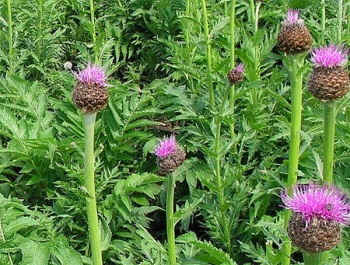Maral Root
Other Names : Rhaponticum carthamoides, Rhaponticum
Maral root is an herbaceous perennial plant from the family Asteraceae that inhabits the sub-alpine zone (4,500–6,000 ft (1,400–1,800 m) above sea level) as well as alpine meadows. It can be found growing wild in Southern Siberia, Kazakhstan, the Altay region, and Western Sayani. Maral root is widely cultivated throughout Russia and Eastern Europe. This plant derives its traditional name Maral root (Maralu) from the maral deer who fed on it.
Special Precautions of Maral Root
Due to a lack of research, the safety of long-term use of dietary supplements containing maral root is unknown. If you're considering the use of maral root in treatment of a chronic condition, make sure to consult your physician before you start taking the supplements.
Health Benefits and uses of Maral Root are
Maral root is a natural remedy long used in certain systems of traditional medicine. Sold in dietary supplement form, it's said to act as an adaptogen (a class of herbs thought to increase your resistance to the harmful effects of stress). Often used to enhance athletic performance and build muscle mass, it's also used to treat a variety of health conditions. Maral root contains a number of compounds thought to influence health, including several antioxidants and ecdysteroids (a type of steroid found to increase muscle mass in preliminary studies
- Heart Health : In a preliminary study published in Drug and Chemical Toxicology in 2008, scientists observed that maral root may help fight the formation of blood clots. Additionally, a rat-based study published in the Russian journal Experimental and Clinical Pharmacology in 2011 found that maral root may help promote recovery from myocardial infarction (a condition more commonly known as heart attack).
- Brain Health : Several preliminary studies indicate that maral root may help treat cerebral ischemia (a stroke-associated condition marked by insufficient blood flow to the brain). In a study published in Experimental and Clinical Pharmacology in 2005, for instance, tests on rats with cerebral ischemia demonstrated that maral root helped restore brain activity and reduce signs of ischemia-related damage.
- Metabolic Syndrome : Maral root shows promise in the treatment of metabolic syndrome, according to an animal study published in BMC Complementary and Alternative Medicine in 2014. In tests on rats, the study's authors found that treatment with maral root may help manage metabolic syndrome by improving blood sugar and blood fat levels.
- More recent research indicates that maral root may have a beneficial effect on impotence, memory and learning, increasing working capacity of tired skeletal muscles, as well as anabolic processes.
